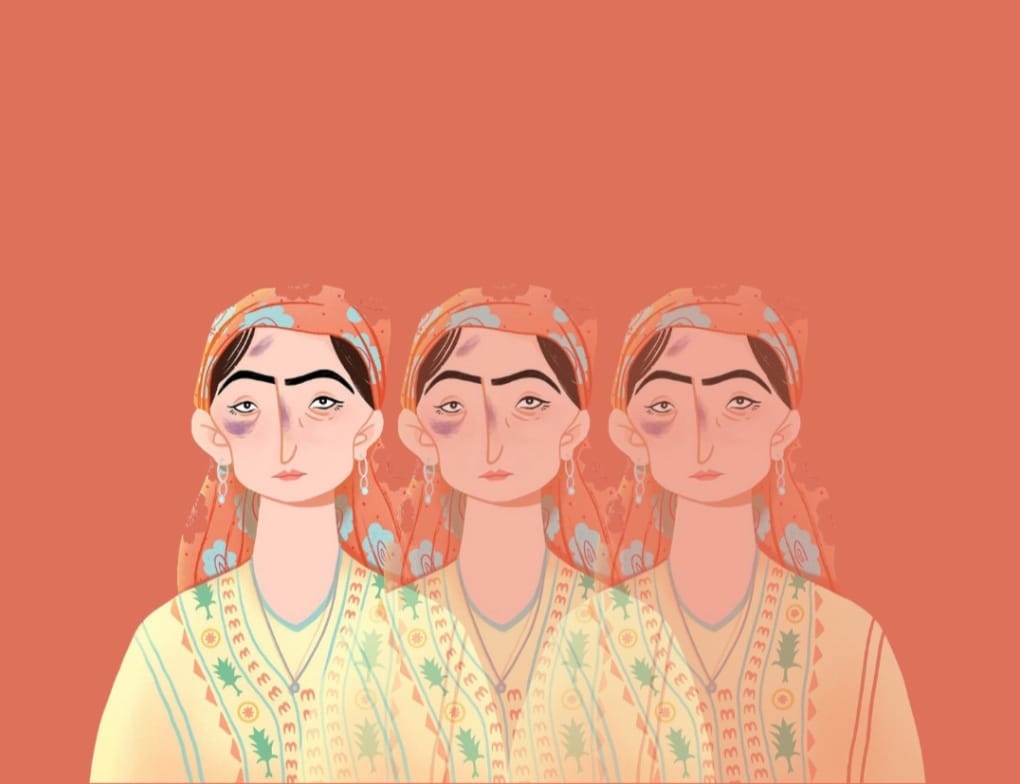
Art Credits: Eda Çağıl Çağlarırmak for Human Rights
The UN has described the worldwide increase in domestic violence due to Covid-19 as a “Shadow Pandemic”.
Instances of domestic abuse increased by 20% during the lockdown. In India, the 70-day long lockdown period recorded a higher number of complaints than those received between March and May in the last 10 years.
What is Domestic Violence?
Domestic violence involves a pattern of psychological, physical, sexual, financial, and emotional abuse. Here, the violence is committed by a member of the victim’s domestic circle.
86% of the cases are unreported, while in those reported, women are at the receiving end in most cases. In fact, 35% of women worldwide have experienced domestic abuse in some form in their lifetime.
The Lockdown Impact
Low availability of Support Groups: Support groups working towards raising awareness, protecting the victims and providing them medical support were rendered less effective due to the lockdown norms.
Increased frustration of abuser: Compounded with stress, financial worry, anxiety, and the surging cases of the novel virus led to a higher degree of frustration projected onto the victim.
No escape: Work or social circle served as an outlet of the victim’s distress but they were now forced to spend all their time with the abuser.
Delayed medical services: Due to the overburdened healthcare facilities, the victims are not able to receive instant medical care.
Fewer helpline executives: With the reduction in office workforce, there were fewer helpline executives to serve an increasingly high number of complaints.
The Victim’s Plight
The complex and multifaceted reasons behind why the victim continues to stay with the abuser has some theories.
The Cycle theory of violence :
The tension-building phase (Victim lives in denial)
The Acute battering phase (Victim faces extreme injuries)
The Loving respite phase (Abuser attempts to make up for the actions)
What can you do to Help?
Stay alert and keep a keen eye for any signs of violence around. Report suspicious cases on the helpline or your nearest police station. Follow WHO guidelines to help victims during Covid-19.
Victims can create a safety plan to alert a trustworthy family member, neighbour or friend. National Commission for Women even launched a WhatsApp helpline during the lockdown (7217735372).



